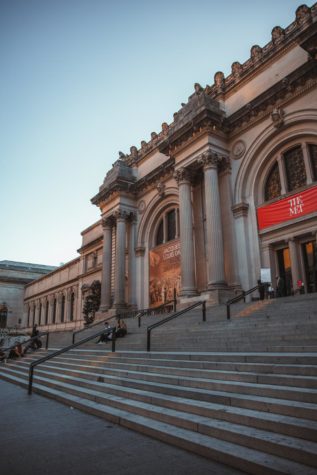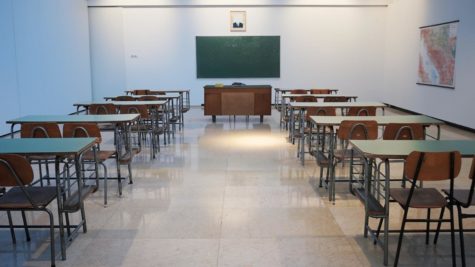The Multi-Cultural Struggle for First Generation Americans
April 7, 2014
As you walk the hallways of Ward Melville, you’ll notice something that many students take for granted: the wide, assortment of diverse cultures blended into one. In a sense, Ward Melville’s diversity bears a striking resemblance to the United Nations, an international community of different countries, each with its own representation. Many students at Ward Melville are the first generation of their families to live or be born in the United States. But although members of different cultures have their respective differences, there is one distinct culture that most students strive to achieve: American. But in doing so, first generation students at Ward Melville are brought into a culture clash – between their native culture and the American culture.
One problem that many immigrants and first generation Americans struggle with is maintaining fluency in their native language. As children, many of these Americans are raised in a bilingual environment, learning to speak English and their native language simultaneously. However, as they age, the need to speak, read, or write well in their native language wanes as they become more immersed in American culture. While parents insist that their children remain diligent in studying, the students are sometimes more reluctant to continue their study of their native language. Proficiency in English becomes the priority, and the many young, progressive students set aside their interest in their native language for subjects in school of greater necessity, such as the four core subjects. As time passes, some first generation Americans and immigrants may completely lose their literacy and/or fluency in their native language.
According to Chinese born Australian junior Thomas Wang, “In Australia, I took a few years of Chinese school that taught me Mandarin alongside kids easily four years younger than me. I didn’t care about the language as I could still understand and speak it.” In regard to the state to his current literacy, Tom said: “Now, I can read/write at a basic level. Nothing more than that.”
A large proportion of Ward Melville’s first generation and immigrant population has lost its fluency in their native languages, and an even larger proportion has lost literacy. In a struggle to assimilate into society, however, first generation Americans and immigrants have more roadblocks than simply language barriers. One problem that many students must endure is the pervasiveness of cultural stereotypes in our society. These stereotypes are oversimplifications of one’s ethnicity or culture. By using a stereotype, we unilaterally characterize all members of an ethnicity as a single trait, often negative. For instance, following the 9/11 attacks, there was an upsurge in racism towards Americans from any part of the Middle East. Many Americans began to associate Middle Eastern people with “terrorism”.
Junior Amir Nassiri, a first generation Iranian-American, speaks of his initial difficulties dealing with these stereotypes. “The whole middle eastern- terrorist thing was offensive to me a while back,” Nassiri said, but over the years has learned to adapt. “I learned that just going with the flow is a lot easier than actually caring about it as long as I know people are just joking.”
In a school of such diversity, many students have come to see cultural stereotypes as a means of humor. We have come to satirize these stereotypes, and use them in good will as opposed to aggression. This is a unique trait of the melting pot that Ward Melville has become, but instances where certain people go too far with racial jokes are not rare. They remind many first-generation Americans or immigrants in the school that in the eyes of “normal” students, they are branded “different”. The wound of cultural insults may be eased, but is never fully healed.
Lastly, many students in this school have difficulty in dealing with traditional relatives who were nurtured in a different society, a different world. These relatives have many values that differ from those that we, students, learn through our system of morals and education. Of course, this is a major issue for students who aren’t immigrants or first-generation Americans, but the latter have a cultural barrier, as well as a generation barrier among family members. Consequently, there is a growing divide between multi-cultured immigrants and first generation Americans and their more traditional relatives.
“My parents happen to be very understanding and realize that some Pashtun customs really have no place in Islam and modern society. I probably have more cultural conflicts with the rest of my family overseas (grandparents, uncles, aunts, cousins) who complain that I’m too outspoken, don’t take their opinions into as much consideration, etc. but my parents are pretty reasonable,” said Pashtun American junior Adina Nawaz.
But at Ward Melville, we have taken tremendous strides to ensure the smooth transition of first generation Americans into a multi-cultural melting pot with open arms. In the words of Chinese American sophomore Alice Liu, “In all of my classes, I’m surrounded by understanding people. We are a really open student body, and that’s amazing. I’m glad.”











